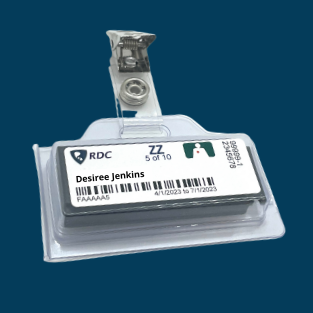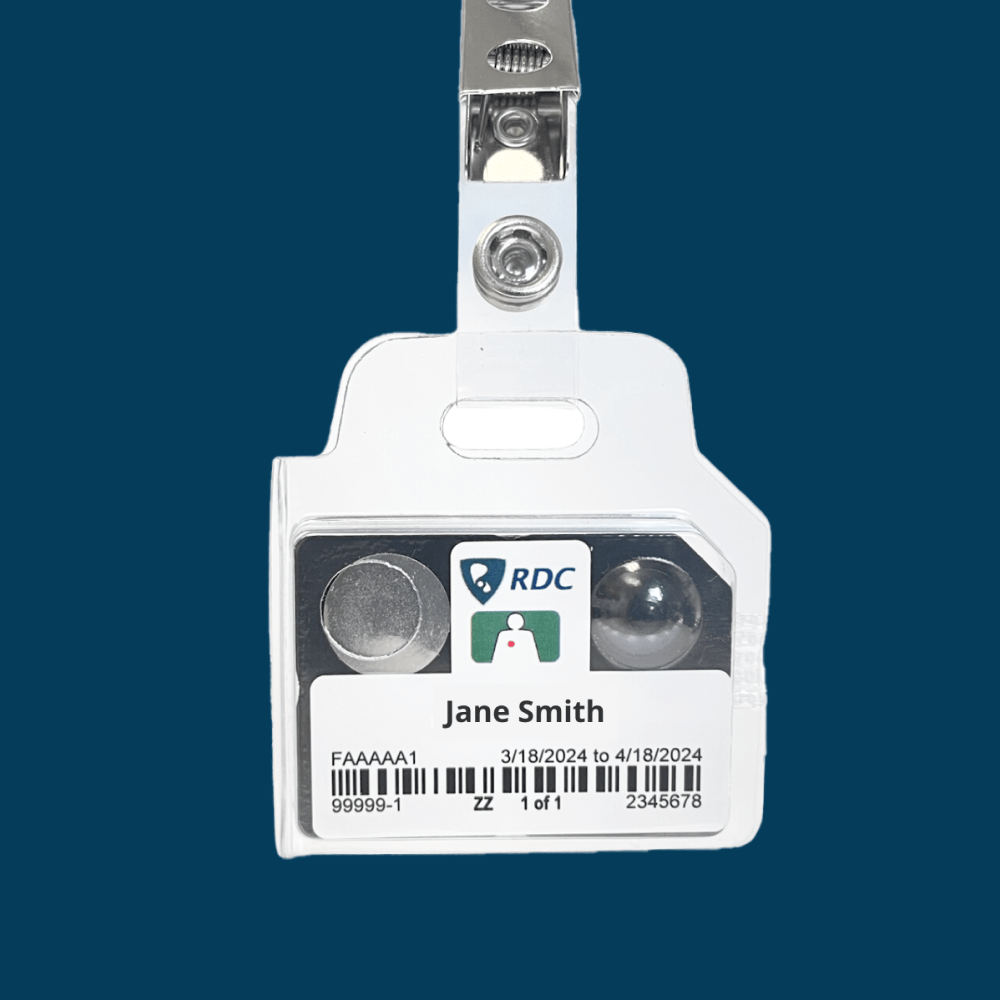Dosimeter Badge Services for Veterinary Radiation Safety
Radiation Detection Company has helped thousands of veterinary practices protect their employees with reliable radiation monitoring and safety since 1949. We can help you, too.

Is This You?
RDC makes it easy for veterinary practices to get compliant, stay safe, and find more ease in your day-to-day.
Congratulations! We know you don’t want to waste time jumping through countless hoops. We’ll help you get compliant quickly.
RDC provides innovative tech, easy-to-read reports, and exceptional customer care – without the hidden fees.
Rising costs, hidden fees, coverage disruptions, and poor customer service create unnecessary headaches. You deserve better.
With RDC, you’ll get exactly what you pay for: outstanding continuous service and cost transparency from the very beginning.
Unfamiliar equipment and new compliance requirements can be daunting, but we’ve got you covered.
RDC has offered US-based customer care to over 31,000 organizations since 1949. We have the industry expertise to help you, too.
Our Solutions
Working with animals can be messy. We’ve got solutions to make radiation safety simple – no cleanup required.

(Optically Stimulated Luminescence)

(Optically Stimulated Luminescence)
(Digital Dosimeter)

(Thermoluminescent Dosimeter)


(Included for free with every badge)
How It Works
We make it easy to monitor radiation exposure without disrupting your business.
Our Customers
Case Study
One of the fastest-growing Corporate Veterinary Groups in the country was frustrated by an unresponsive dosimetry services provider amidst a 75% annual growth rate.
They sought a scalable, cost-efficient solution that streamlined operations and didn’t shortcut quality.
By consolidating locations into a single corporate account, the company earned instant cost savings of over 60%.

organizations served
badges shipped annually
net promoter score
customer satisfaction
years in business
Our Promise
You can trust RDC to deliver reliable dedicated care.
Frequently Asked Questions
Veterinary practices may utilize dosimetry badges to measure radiation used during the imaging process when diagnosing and treating animals. Dosimetry badges help ensure safety, comply with regulations, identify high-risk areas, and enable individuals to protect themselves.
Locate the label on your radiation-emitting device to determine the type of radiation used in your office. In veterinary offices, this typically includes imaging devices and radiation therapy devices.
Some states may have additional radiation monitoring requirements in addition the federal guidelines. For the most accurate and up-to-date information, please consult the US Nuclear Regulatory Commission’s list of NRC and Agreement States.
Feeling overwhelmed? We can help. Reach out to RDC directly and we’ll walk you through our personalized recommendations to keep your entire team safe.
In addition to OSL or TLD whole body radiation badges, veterinarians, vet techs, and other support staff may also use extremity badges (wrist or ring) and/or fetal monitors. Employees should consult the US Nuclear Regulatory Commission for an exhaustive list of conditions requiring individual monitoring of external and internal occupational dose.
Area monitors measure radiation exposure at or near radiation sources in veterinary offices. We recommend using an area monitor in addition to personnel monitoring to monitor possible radiation exposure to employees who may not be provided a whole body badge (such as front office staff), or members of the public.
Area monitoring can help protect personnel and the public from an adverse amount of radiation in veterinary settings during imaging and radiation therapy sessions.

Discover the best veterinary dosimetry badge for your organization with our comprehensive guide. This post reviews all the factors to consider when choosing a personal X-ray dosimeter for your staff.

Discover the essential tips and guidelines for properly wearing and maintaining your X-ray badge to ensure accurate radiation exposure monitoring.

Sign Up in 5 Minutes. Get Badges in as Little as 2 Business Days.